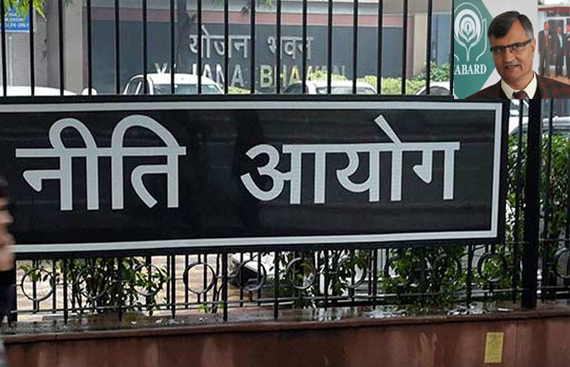India nominates NITI Aayog's Ramesh Chand to head FAO

India has nominated NITI Aayog member Ramesh Chand for the post of the new Food and Agriculture Organisation's (FAO) Director-General and he will be facing candidates from China and three other countries.
The FAO announced on Monday the slate of candidates nominated by their governments for the election that is scheduled in June to pick the successor to Brazilian economist Jose Graziano da Silva, who has served two terms since 2011.
The other candidates are Qu Dongyu of China, Medi Moungui of Cameroon, Catherine Geslain-Laneelle of France and Davit Kirvalidze of Georgia.
The next head of the Rome-headquarted FAO, a specialised agency of the UN, will be elected by a simple majority of its 194 members.
An economist, Chand is a member of the NITI Aayog with the status of a Minister of State. He has a PhD in agricultural economics from the Indian Agricultural Research Institute (IARI) and has served as the Director of the National Institute of Agricultural Economics and Policy Research in New Delhi.
Chand is expected to face stiff competition from Qu because of the influence China wields in developing countries through its aid and loan programmes that could even split the African votes away from Moungui.
Quoting FAO watchers, Italian Insider, a publication that closely monitors the organisation, reported that India had tried to persuade China not to field a candidate so as not to split the Asian vote.
It added that "many African countries receiving hefty Chinese aid are likely to come under pressure not to vote for Cameroon, which claims to have the backing of all African countries".
The only Indian to head the FAO is Binay Ranjan Sen, who was the Director-General from 1956 to 1967.
The next Director-General will have to help the organisation navigate the challenges of climate change, loss of bio-diversity and feeding a growing world population.
The FAO reported last year that almost 800 million people are always hungry and 2 billion suffer from deficiencies in micronutrients in their diet that lead to health problems
The report said that the world would have to feed a global population that is expected to reach about 10 billion by 2050.
Growth of agricultural yields "has slowed to rates that are too low for comfort", even though investments in agriculture and technological innovations have been increasing productivity, it added.
Read More News:
IAF's 12 Mirage 2000 Jets Bomb Pakistan with 1000 KGs of Bombs
War memorial may replace Amar Jawan Jyoti as venue for paying tribute to fallen soldiers


.jpg)
